“Nebraska Voters’ Outlook” is a public opinion research initiative of the Holland Children’s Institute. We are sharing findings from a statewide public opinion survey commissioned late this summer. The third release in the Nebraska Voters’ Outlook series reveals 72% of Nebraska voters believe the state is spending too little on job training programs.
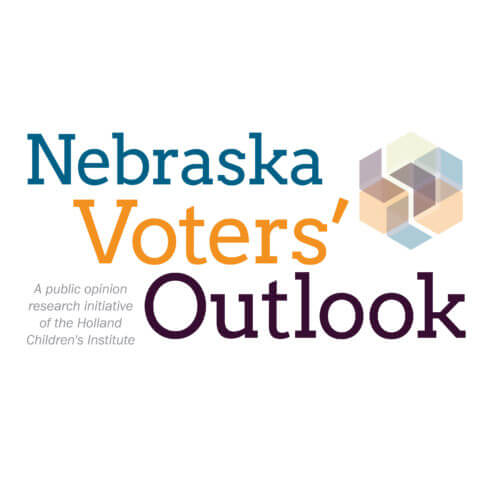
“Republicans, Democrats, and Independents in Nebraska agree a wide range of economic policies will support and grow the middle class like paid family leave, career and vocational education, and affordable tuition in higher education,” said Hadley Richters, CEO of Holland Children’s Institute. “And they want to see more investments in those policies, instead of more corporate tax breaks.”
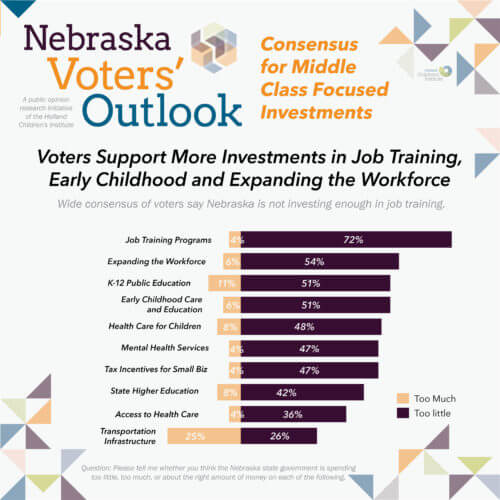
Richters said, “Notably, majorities in Nebraska agree that the state spends too little on job training programs, K-12 education, and early childhood care and education.”
Nebraska Voters’ Outlook: Views on Supporting and Growing the Middle Class
When asked whether Nebraska families had enough access to the tools and services they needed to attain a middle-class lifestyle, responses were sharply divided along partisan and gender lines. There is a consensus opinion (69 percent agree more) that the best way to support Nebraska’s middle class is to focus more on investments in small business, working families, and children as compared to 27 percent who would prefer to see the state focus on cutting taxes and regulations on large businesses.
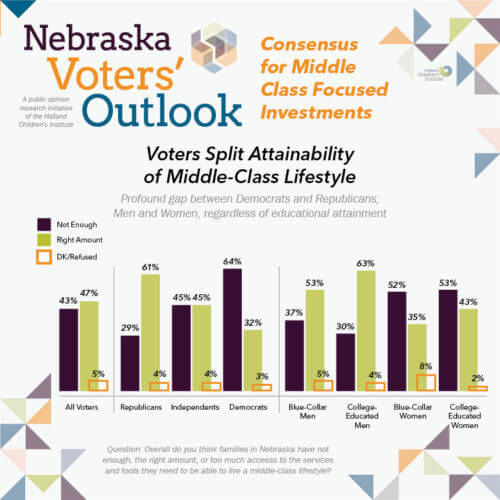
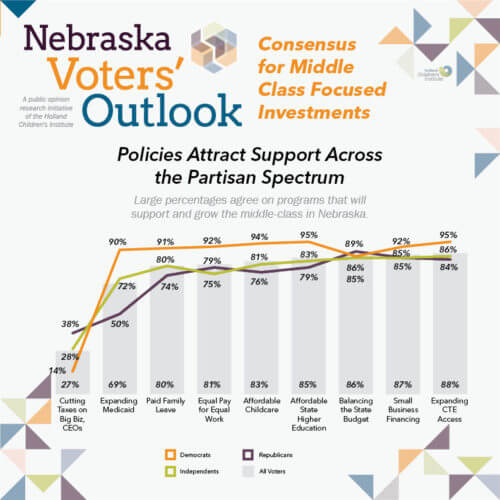
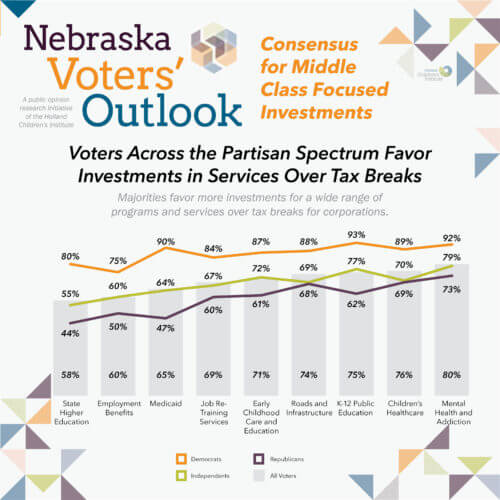
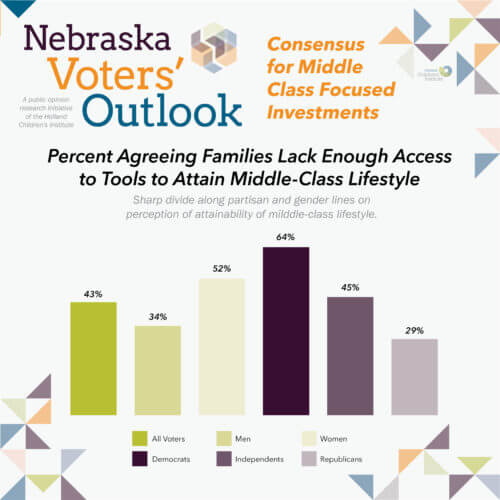
When asked which policies will support and grow the middle class and workforce in Nebraska, respondents were particularly supportive of creating more accessible career and vocational educational programs (88 percent agree- 9 percent disagree), ensuring tuition is affordable at state colleges and universities (85 percent agree – 12 disagree), and expanding access to affordable, quality childcare (83 percent agree – 14 percent disagree).
Voters believe that the state is underinvesting in job skills and training programs (72 percent too little), K-12 public education (51 percent), expanding the workforce (54 percent), and early childhood care and education (51 percent).
Survey Methodology: TargetSmart designed and administered this telephone survey conducted by professional interviewers. The survey reached 600 adults, age 18 or older, who indicated they were registered to vote in Nebraska. The survey was conducted from July 25-29, 2018. The sample was randomly selected from TargetSmart’s enhanced voter file. The data were weighted by gender, age, party registration, and region by congressional district to ensure an accurate reflection of the population. The overall margin of error is ±4.0%. The margin of error for subgroups is larger and varies. Percentage totals may not add up precisely due to rounding. Read More.